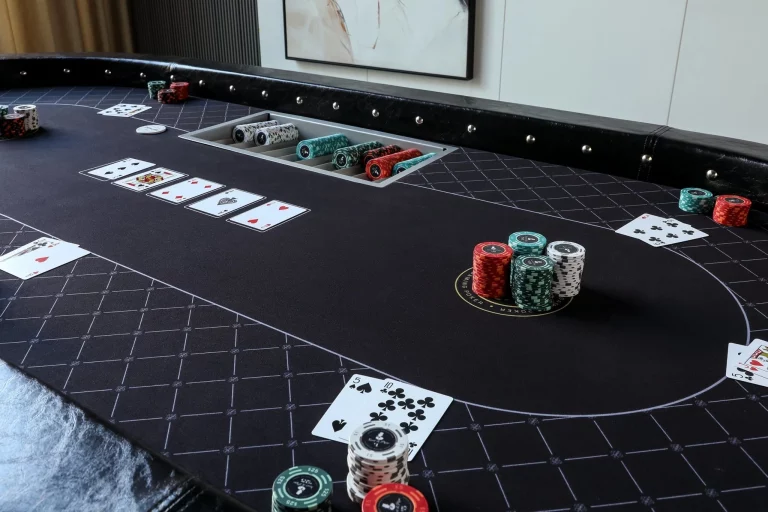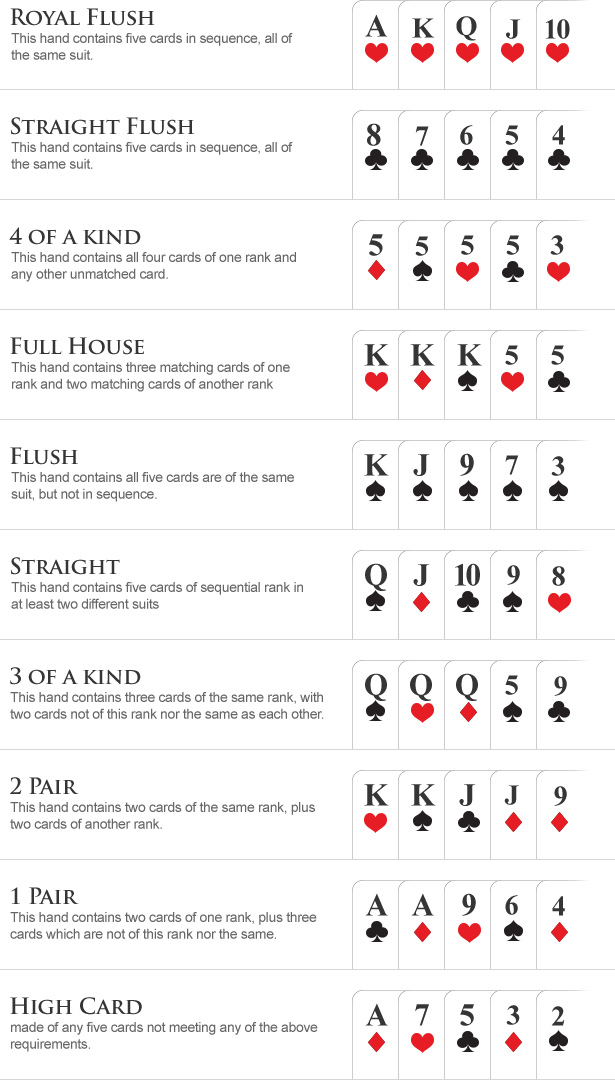Learn the Rules for Poker
Poker is a game of strategy, psychology, and chance, which makes it one of the most popular card games. The roots of the game stretch back centuries and have evolved into numerous variants. Poker is about making the best hand or convincing others you have it, and then betting accordingly. This is achieved through a combination of hidden and communal cards, depending on the variant. Players bet in rounds, strategically raising, calling, or folding, based on the strength of their hand and their read on opponents. The game’s allure lies in the intricate balance between skill and luck, the depth of strategy involved, and the social interaction it fosters. It’s a game where understanding human psychology and mastering the art of deception can be as crucial as the cards you are dealt. We’ll go into the rules for poker so you can become an expert in no time.

How to Play Poker
Poker is a popular card game that comes in various variants, with Texas Hold’em being one of the most commonly played versions. Here, I’ll explain the general rules of poker, along with the different poker hands in descending order of strength:
Objective
- The objective of poker is to win chips or money by either having the best hand at showdown or by convincing other players to fold their hands.
Card Values
- The standard deck of 52 playing cards is used.
- The cards are ranked from highest to lowest: Ace, King, Queen, Jack, 10, 9, 8, 7, 6, 5, 4, 3, 2.
- All suits are of equal value in poker.
Gameplay
- Blinds and Ante:
- In some games, players are first required to make forced bets known as “blinds” before the cards are dealt. The player to the dealer’s left posts the “small blind,” and the next player posts the “big blind.” Blinds are used to create initial money in the pot. In other games, there may be an “ante” instead of blinds, where all players contribute a small amount to the pot before the deal.
- Hole Cards:
- Each player is then dealt private cards face down, known as “hole cards.” The number of hole cards and the betting structure depends on the poker variant being played.
- Betting Rounds:
- Betting rounds occur between dealing community cards, and players then having the option to fold (discard their hand and forfeit the round), check (pass the action to the next player), bet, call (match the current bet), or raise (increase the bet). The number of betting rounds varies based on the poker variant.
- Community Cards:
- In some poker variants, community cards are dealt face-up on the table and are shared by all players to form their hands. The most well-known variant with community cards is Texas Hold’em.
- Showdown:
- If two or more players remain after the final betting round, then there is a showdown. Players reveal their hole cards, and the best five-card hand wins the pot.
Poker Hands (In Descending Order of Strength)
- Royal Flush:
- A, K, Q, J, 10 – all of the same suit.
- Straight Flush:
- Five consecutive cards of the same suit (e.g., 9, 8, 7, 6, 5 of hearts).
- Four of a Kind:
- Four cards of the same rank (e.g., four Kings).
- Full House:
- Three cards of one rank and two cards of another rank (e.g., three Queens and two Fives).
- Flush:
- Five cards of the same suit, not in sequence (e.g., any five hearts).
- Straight:
- Five consecutive cards of different suits (e.g., 10 of spades, 9 of hearts, 8 of clubs, 7 of diamonds, 6 of hearts).
- Three of a Kind:
- Three cards of the same rank (e.g., three Jacks).
- Two Pair:
- Two sets of two cards of the same rank (e.g., two Kings and two Sevens).
- One Pair:
- Two cards of the same rank (e.g., two Aces).
- High Card:
- If no player has any of the above hands, then the player with the highest card in the hand wins. If players tie, then the second highest card is considered, and so on until a winner is determined.

Poker Rules Conclusion
These are the basic rules of poker and the hand rankings used in most variants. However, different poker games may have additional rules or variations, so it’s essential to familiarize yourself with the specific rules of the variant you’re playing. Remember that poker involves strategy, reading opponents, and managing risks, making it a fascinating and skillful game enjoyed by players of all levels.
Play Poker at The Top Online Casinos
At Clicktoacasino.com, we pride ourselves on providing independent reviews of the top online casinos to ensure that the player is put first. We want the player, and their gameplay, to be our priority. All casinos advertised have been reviewed by our team, or an independent game tester. This ensures they are provably fair and will provide the player with the best gambling experience.
This site contains affiliate links, so we may receive a commission if you make a deposit after clicking on one of these links. However, this has no bearing on our reviews and comparisons. We do our best to review each online casino based on several factors. We want to ensure your gameplay is safe, fair, and most importantly, fun.
Online gambling is illegal in some countries and jurisdictions. Because of this, it is your responsibility to ensure that gambling is legal in your jurisdiction. You should also ensure the Terms and Conditions, as stated by the online casino, are followed. We are not responsible for any financial losses incurred. If you feel that you may have a gambling problem, please review the ‘Responsible Gambling” section of this site for information on how to keep gameplay fun. Please play responsibly.






